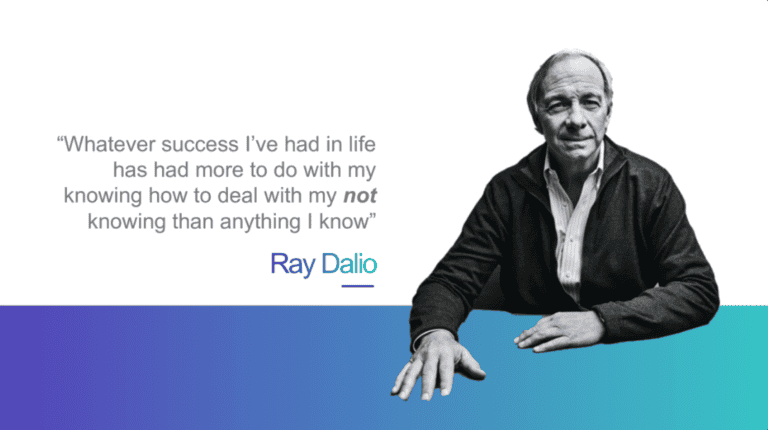Insights & Growth: Lessons from Jiddu Krishnamurti
|
Getting your Trinity Audio player ready...
|
“The ability to think is of great value; but insight into what lies beyond thought is indispensable.” – Jiddu Krishnamurti
Welcome to a journey of self-discovery and personal growth, guided by the profound teachings of Jiddu Krishnamurti. Known for his philosophical wisdom and profound insights, Krishnamurti offers invaluable lessons on consciousness, breaking patterns, transcending self-interest, and embracing connection. His teachings provide a transformative pathway to understanding the deeper meaning of life and one’s place within it.
Key Takeaways:
- Gain insight beyond thought for a deeper understanding of self and life’s purpose.
- Explore the nature of consciousness and dissolve the divisions within.
- Break free from conditioned thinking by living in the present moment.
- Transcend the limitations of the brain and self-interest.
- Identify with humanity and embrace the unity of consciousness.
Exploring Consciousness: The Composition of Your Being
What is consciousness? According to Jiddu Krishnamurti, renowned philosopher and spiritual teacher, consciousness encompasses the thoughts, beliefs, actions, and reactions that shape our individual identities. Krishnamurti emphasizes that this consciousness is inherently divisive and fragmented in nature.
In his profound teachings on consciousness, Krishnamurti invites us to question the content of our consciousness and explore the possibility of dissolution. Can the fragmented nature of our consciousness be transcended? Can we experience a state of being that is more unified, expansive, and free?
Krishnamurti’s perspective sheds light on the limitations imposed by our fragmented consciousness. He encourages us to delve deep within ourselves and examine the thoughts, beliefs, patterns, and conditioning that contribute to our sense of separation.
“The content of our consciousness keeps us separate, but is it possible for the content to be completely dissolved?”
This profound inquiry encourages us to challenge our conditioning, the structures that harbor division, and explore the possibility of a consciousness that is unbounded by limitations.
By exploring our consciousness and its fragmented nature, we begin to unravel the illusions and attachments that confine us. This exploration invites a deeper understanding of the self and opens the door to a more expansive and interconnected experience of being.
The Fragmented Nature of Consciousness
Krishnamurti’s teachings on consciousness underscore the fragmented nature of our thoughts and perceptions. Our conditioning, past experiences, and social influences shape our consciousness, leading to divisions and conflicts within ourselves and with others.
Through self-inquiry and observation, we can become aware of the ways in which our consciousness is fragmented. Krishnamurti’s teachings provide valuable insights into recognizing the divisive patterns of thought and perception that limit our sense of wholeness and connection.
When we become conscious of our fragmented consciousness, we can actively work towards dissolving the barriers that separate us from our true essence and one another.
Achieving Unity and Expansion
The journey towards unity and expansion in consciousness is not a destination; rather, it is a continual process of self-inquiry and self-discovery. By questioning and examining our thoughts, beliefs, and actions, we can begin to dissolve the fragmented nature of our consciousness.
This process requires openness, curiosity, and a willingness to challenge our preconceived notions. Through inner exploration, we can uncover the underlying unity that transcends the apparent divisions, experiencing a state of being that is interconnected and expansive.
| Benefits of Exploring Consciousness | How to Explore Consciousness |
|---|---|
| Greater self-awareness | Self-inquiry through meditation and introspection |
| Expanded understanding of others | Engaging in open-minded conversations and seeking diverse perspectives |
| Heightened compassion and empathy | Cultivating a sense of interconnectedness and practicing acts of kindness |
| Freedom from limiting beliefs | Questioning and challenging ingrained patterns of thought |
Exploring consciousness offers the opportunity to transcend our fragmented sense of self and cultivate a more expansive, interconnected, and compassionate way of being in the world. Through self-inquiry, meditation, and a willingness to question our deeply ingrained beliefs, we can embark on a transformative journey towards unity and wholeness.
Breaking Free from Patterns: Liberating the Mind
In his teachings, Jiddu Krishnamurti sheds light on the human tendency to seek liberation from conditioned thinking and break free from patterns that limit personal growth and self-discovery. He observes that many individuals attempt to escape these patterns through external means such as engaging in drugs, pursuing sexual experiences, or imposing rigid disciplines upon themselves. However, Krishnamurti argues that true liberation can only be achieved through direct insight and perception.
According to Krishnamurti, breaking patterns involves a profound shift in consciousness and a willingness to question the very foundation of conditioned thinking. It requires a genuine exploration of one’s beliefs, values, and assumptions, without relying on external influences or predefined solutions. Krishnamurti’s approach to breaking patterns emphasizes the importance of living in the present moment and rejecting the notion of a future awakening or gradual progress.
“Liberation from conditioned thinking is not a journey of accumulation or self-improvement. It is a timeless process of self-inquiry and self-discovery,” Krishnamurti remarks.
By cultivating a state of mindfulness and awareness, individuals can start to uncover the underlying mechanisms that perpetuate conditioned thinking and prevent genuine liberation. Krishnamurti encourages us to observe our thoughts and emotions without judgment or resistance, allowing for a deeper understanding of their roots and implications. Through this process of insight and self-reflection, the patterns of conditioned thinking can be revealed and dissolved.
In breaking patterns, Krishnamurti emphasizes the necessity of discarding the notion of becoming something or reaching a future state of enlightenment. Instead, he advocates for a direct and immediate transformation of consciousness through the present moment. By fully engaging with the now and embracing the totality of one’s experience, individuals can begin to liberate their minds from conditioned patterns and open themselves to a more expansive and authentic way of being.
Embracing Krishnamurti’s approach to breaking patterns requires courage, self-inquiry, and a deep yearning for freedom from the limitations of conditioned thinking. It is a call to challenge our beliefs, question our assumptions, and explore the depths of our consciousness with unwavering curiosity and openness. Through this process, true liberation can be realized, leading to a profound transformation of the mind and an enriched experience of life.
| Key Concepts | Explanation |
|---|---|
| Conditioned Thinking | The ingrained patterns of thought, belief, and behavior that restrict personal growth and limit the ability to see reality objectively. |
| Direct Insight and Perception | The process of gaining deep understanding by directly observing and perceiving reality without the influence of preconceived notions or external authorities. |
| Living in the Present Moment | The practice of fully engaging with the current experience rather than dwelling in the past or anticipating the future, fostering a greater sense of awareness and freedom. |
| Mindfulness and Self-Reflection | The cultivation of a non-judgmental awareness of one’s thoughts, emotions, and actions, allowing for a deeper understanding of conditioned patterns and their origins. |
| Immediate Transformation | The dissolution of conditioned patterns and the liberation of the mind that can be realized in the present moment, without relying on future progress or external circumstances. |
The Limits of the Brain: Transcending Self-Interest
According to Jiddu Krishnamurti, the brain is not as limitless as we may perceive it to be. It is, in fact, confined by knowledge, specialization, and self-interest. Our desires for happiness, success, and recognition often overshadow the vast potential of the brain, restricting our ability to explore new horizons and transcend the limitations set by our own self-interest.
When we are driven by self-interest, our thoughts and actions revolve around personal gain and validation. This narrow focus prevents us from fully tapping into the depths of our intellectual and creative capacities. Krishnamurti encourages us to question the true nature of our desires and motivations, urging us not to be solely defined by external pursuits and egoic illusions.
In the pursuit of self-transcendence, it is essential to examine our beliefs, prejudices, and deeply ingrained patterns of thought. By challenging the boundaries set by our self-interest, we can expand our perspective, embrace new possibilities, and foster a genuine connection with the world around us. Krishnamurti teaches us that true freedom lies in understanding the limitations of the brain and rising above the self-centeredness that holds us back.
“The brain can never be free as long as it has any form of self-interest. It is caught up in the nonessential, seeking power, position, prestige, and success, which only create further bondage, further conflict.”
Transcending the Self-Centered Mind
In order to transcend the limits of the brain and push beyond self-interest, Krishnamurti encourages self-inquiry and introspection. By examining the motivations behind our actions and desires, we can uncover the subtle ways in which self-interest influences our thinking and behavior.
When we become aware of the conditioning and patterns of thought that arise from self-interest, we can consciously choose to transcend them. This process involves letting go of the need for personal gain, recognition, and comparison, and instead, striving for a broader understanding of ourselves and our role in the world.
Embracing a Higher Perspective
As we transcend the limitations of the brain and rise above self-interest, we open ourselves to a higher perspective that is beyond our own individual desires and concerns. This broader perspective allows us to see the interconnectedness of all life and the unity that exists between us and the world.
By embracing this higher perspective, we cultivate a sense of compassion, empathy, and interconnectedness. We begin to recognize the futility of pursuing self-interest at the expense of others and the planet. Instead, we strive for a harmonious coexistence that honors the well-being and flourishing of all beings.
| Self-Interest | Transcendence |
|---|---|
| Driven by personal gain | Aligned with the well-being of all |
| Creates division and conflict | Fosters unity and harmony |
| Emphasis on competition | Embrace of cooperation and collaboration |
Transcending the limits of the brain and self-interest is not an easy journey, but it is a path that leads to personal growth, expanded awareness, and a more meaningful existence. Krishnamurti’s teachings inspire us to question our own motives, beliefs, and patterns of thought, empowering us to move beyond the confines of the self-centered mind and embrace a larger, interconnected reality.
Identifying with Humanity: Embracing Connection
In his profound teachings, Jiddu Krishnamurti emphasizes the essential nature of identifying with humanity and the transformative power of embracing connection. He invites individuals to recognize that regardless of our nationality, religion, or background, we all share the same consciousness and common human experiences. This recognition liberates us from the limitations of separation and cultivates a profound sense of unity and oneness.
By identifying with humanity, we move beyond the boundaries of the self and expand our capacity for empathy, love, and compassion. Krishnamurti’s teachings on the unity of consciousness present an invitation to dissolve the illusion of separation and recognize the interconnectedness of all beings.
“The idea of being an individual must have very little significance when we realize the total picture of life, the total picture of existence, which you have to find out, not me. One has to find out for oneself what is the unity of consciousness; whether it is a projected form of the mind or whether it is something absolute, never touched by man, which is not cultivated by thought.”
Through this deep recognition of our interconnectedness, we release ourselves from the constraints of self-interest and egocentricity. It opens the door to a boundless capacity for love, understanding, and collaboration. Identifying with humanity allows us to transcend our own limited perspective and embrace a larger collective wisdom that arises from the unity of consciousness.
Practical Exercise: Cultivating Connection
To put Krishnamurti’s teachings into practice, we can engage in simple yet powerful exercises that help us develop a deeper sense of connection and identification with humanity:
- Engage in active listening: By genuinely listening to others without judgment or preconceived notions, we create a space for deeper connection and understanding.
- Show empathy: Put yourself in someone else’s shoes and try to understand their experiences, feelings, and perspectives. This cultivates compassion and strengthens the bonds that connect us.
- Practice acts of kindness: Small gestures of kindness and generosity have the power to create ripples of connection and spread positivity throughout the world.
- Participate in community service: Engaging in volunteer work or community projects allows us to contribute to the well-being of others and strengthen our sense of unity and connection.
Incorporating these practices into our daily lives helps us embody Krishnamurti’s teachings on identifying with humanity and embracing connection. By recognizing our shared consciousness and fostering connection, we contribute to the collective awakening and transformation of humanity.
| Key Points | Benefits | Practices |
|---|---|---|
| Identifying with humanity | Increased empathy and compassion | – Active listening |
| Unity of consciousness | Expanded capacity for love | – Showing empathy |
| Krishnamurti’s teachings on connection | Enhanced sense of belonging | – Practicing acts of kindness |
Letting Go of Comparison: Embracing Wholeness
Comparison is a deeply ingrained habit that often leads to a sense of superiority or inferiority. Jiddu Krishnamurti challenges us to break free from the cycle of constant comparison, which creates division, conflict, and an endless pursuit of pleasure or avoidance of pain. To overcome competition and embrace wholeness, we must let go of the need for external validation and find joy in being present.
The Illusion of Superiority or Inferiority
When we compare ourselves to others, we unwittingly enter a game of superiority or inferiority. This comparison is rooted in the idea that one person is better or worse than another, leading to a fragmentation of our sense of self. Krishnamurti teaches us that this constant comparison perpetuates conflict and undermines our ability to be fully present and whole.
“To understand comparison is to be conscious, to be aware of, to observe, and to understand how this constant weighing gives us a sense of being superior or inferior.” – Jiddu Krishnamurti
Creating Division and Conflict
Comparison is an inherent division within ourselves and between others. It creates a continuous cycle of conflict, as we constantly measure ourselves against others and seek validation through external achievements or possessions. This division leads to an ongoing sense of dissatisfaction, as there will always be someone better or worse in different aspects of life.
The Pursuit of Pleasure and Avoidance of Pain
When we compare ourselves to others, our focus shifts to seeking pleasure or avoiding pain. We become fixated on external validation and the need to outperform others, striving for success, recognition, and material possessions. This pursuit, however, leads to a perpetual state of discontentment and a shallow understanding of true fulfillment.
The Joy of Being Present and Whole
By letting go of comparison, we open ourselves to the joy of being present and whole. Krishnamurti’s teachings guide us to embrace ourselves as we are, without the need for external measures of worthiness. When we release the habit of comparison, we can fully engage in the richness of each moment, cultivating self-acceptance, contentment, and a profound connection with ourselves and others.
Embracing Wholeness: A Journey to Self-Discovery
Embracing wholeness requires a shift in our perspective and a willingness to let go of conditioned patterns. By cultivating self-awareness and challenging the habit of comparison, we can free ourselves from the constraints of competition and discover our authentic selves. As Krishnamurti teaches, embracing wholeness is not about proving ourselves to others, but about finding peace, harmony, and genuine connection within ourselves and the world around us.
Comparison vs. Wholeness
| Comparison | Wholeness |
|---|---|
| Creates division | Fosters unity |
| Leads to conflict | Cultivates inner peace |
| Results in constant pursuit of pleasure or avoidance of pain | Embraces the joy of being present |
| Basis for external validation | Rooted in self-acceptance |
| Perpetuates a sense of superiority or inferiority | Nurtures a sense of wholeness and connection |
Facing Fear: Liberation from Psychological Turmoil
Fear is an inherent part of the human experience—a response to uncertainty and resistance to pain. Jiddu Krishnamurti, a renowned philosopher and spiritual teacher, offers invaluable insight into fear and its grip on our lives.
“Fear cannot exist without time, without the past or the future. To observe fear without accumulating the feeling of it, without any thought of its opposite, to observe it on the instant, as it arises instantly in various forms… then there is no observer, no experiencer; the experience becomes the observer… this function is totally different from the observer facing fear.”
Krishnamurti’s perspective on fear invites us to be fully present and courageous in facing our fears without judgment. Rather than letting fear govern our actions, he suggests embracing the present moment, where fear loses its hold and liberation can be found.
In the words of Krishnamurti:
“To go through fear demands vast intelligence. To know what love is, to be in a state of love, demands that intelligence which is not put together by thought.”
By diving deep into the nature of fear and observing it without the influence of past or future projections, we can transcend its grip and experience true liberation. This entails being aware of fear as it arises in various forms, without accumulating its emotional weight.
Embracing the Present Moment
In Krishnamurti’s teachings, overcoming fear is intimately intertwined with embracing the present moment. By cultivating a state of mindfulness, we can stay anchored in the now and break free from the chains of fear.
Embracing the present moment allows us to:
- Let go of worries about the future and regrets from the past
- Experience life fully, without being burdened by fear
- Tap into our inner wisdom and intuition
- Find freedom and liberation from psychological turmoil
- Cultivate a sense of peace and contentment
In this state of presence, fear loses its power. Instead of avoiding or suppressing fear, we can approach it with curiosity and compassion, learning from it and ultimately transcending its grip.
| Fear | Krishnamurti’s Perspective |
|---|---|
| Rooted in uncertainty and resistance to pain | Explored through observation and understanding |
| Connected to the past and future | Transcended through being fully present |
| Binds and restricts our actions | Transformed into liberation and freedom |
| Causes psychological turmoil | Overcome through embracing the present moment |
Table: Krishnamurti’s Perspective on Fear and Liberation
In the journey of self-discovery, Krishnamurti’s teachings shed light on the transformative power of facing fear and embracing the present moment. By delving into the depths of fear and observing it without judgment, we can liberate ourselves from its grip, opening the doors to greater clarity, joy, and freedom in our lives.
Thought and Perception: Breaking the Cycle of Division
As Jiddu Krishnamurti delves into the nature of thought, he brings to light its inherent tendency to create division, separation, and conflict within individuals and society. He emphasizes the need to observe thoughts without labeling or comparing them, allowing for a holistic perception of the present moment. By breaking free from the divisions created by thought, one can experience a profound sense of unity and joy.
“Thought creates the sense of division – the division between the thinker and the thought, between the observer and the observed. But when thought is observed, seen for what it is, without any identification, then that very observation puts an end to division.”
According to Krishnamurti’s teachings, the nature of thought is inherently divisive due to the conditioning of our minds. Our thoughts tend to categorize, judge, and compare, creating a sense of separation and conflict within ourselves and with others. However, by cultivating awareness and observing thoughts without getting caught in the cycle of identification and reaction, one can break free from this divisive nature and open the doors to a more unified perception.
One of Krishnamurti’s core teachings on perception is to be attentive and aware of the present moment without the interference of thought. He encourages individuals to observe their own thought process, noticing how thoughts arise, and how they can shape our perception of reality. By becoming aware of this process, one can transcend the limitations imposed by thought and tap into a deeper, more direct perception of the world.
By letting go of the divisions created by thought, individuals can experience a profound shift in their perception and an expansion of consciousness. This shift allows for a deep sense of connection to everything and everyone, breaking down barriers and fostering empathy, compassion, and unity.
Perception without division
Breaking the cycle of division requires a shift in perception, a willingness to transcend the limitations imposed by thought. When the mind is free from the constant chatter of comparison, judgment, and categorization, a clear and undistorted perception arises.
- Awareness of thought: Recognize when the mind is engaged in divisive thinking patterns. Observe thoughts as they arise without getting entangled in them.
- Observe without labeling: Avoid categorizing or judging thoughts as good or bad. Simply observe them as passing phenomena.
- Embrace the present moment: Direct attention to the present moment, allowing thoughts to subside and creating space for direct perception.
- Cultivate holistic perception: Through sustained awareness and practice, develop a perception that goes beyond divisive thoughts, embracing the interconnectedness of all things.
Breaking the cycle of division is a transformative process that requires self-reflection, self-awareness, and a deep inquiry into the nature of thought itself. Embracing Krishnamurti’s teachings on perception can lead to a profound shift in consciousness, allowing individuals to experience the unity and joy that comes from perceiving the world without the divisions created by thought.
The Nature of the Self: Beyond Fragmentation
Krishnamurti, a profound philosopher, delves into the intricate nature of the self, questioning whether it is merely a construct of thought, inevitably fragmented and transient. He invites individuals to embark on an inward journey, devoid of preconceived notions or predetermined conclusions, to explore the essence of the self that transcends the limitations of time and fragmentation. In this quest for self-discovery, one may unravel a profound sense of wholeness and liberation that lies beyond the confines of the self.
Krishnamurti’s perspective challenges conventional beliefs and encourages a deep examination of the self. He suggests that the self, bound by thought and conditioned by experiences, is a construct that perpetuates division and conflict. However, he prompts individuals to question the true nature of the self, peeling away the layers of conditioning to uncover an essence that is dynamically interconnected with all of existence.
By embracing Krishnamurti’s teachings on the nature of the self, we can gain insights into the illusory nature of our fragmented identities. The exploration of the inmost nature of the self opens the door to a profound realization that we are not separate entities disconnected from the world, but rather interconnected beings intricately woven into the fabric of life.
Discovering Wholeness in the Present Moment
Krishnamurti guides us to examine the self without judgment, comparisons, or the desire for self-improvement. He encourages us to be fully present in the moment, observing our thoughts, emotions, and reactions without identification or attachment. In this heightened state of awareness, we may catch glimpses of a self that is free from the confines of thought, bridging the gap between the self and the wholeness of being.
Realizing Liberation and Wholeness
Through deep introspection and inquiry, Krishnamurti invites us to question the very nature of the self and its existence. He reminds us that the self is not a static entity but a process, constantly in flux and subject to change. By recognizing our inherent interconnectedness and relinquishing the illusion of a separate self, we can transcend the limitations of fragmentation and experience the profound freedom and wholeness of being.
| Key Ideas | Krishnamurti’s Perspective |
|---|---|
| The Self as a Product of Thought | Questioning the inherent fragmentary nature of the self and its relationship to thought. |
| Examining the Essence of the Self | Inviting individuals to explore the self beyond preconceived notions and conditioned beliefs. |
| Transcending Time and Fragmentation | Discovering a deeper essence of the self that goes beyond the limitations of time and fragmented identity. |
| Embracing a Sense of Wholeness | Finding profound liberation and wholeness through letting go of the illusion of a separate self. |
Life and Death: The Continuity of Being
Jiddu Krishnamurti encourages individuals to embark on a deeper exploration of life and death, challenging the conventional understanding of these concepts. He invites us to question the nature of the self and its relationship to life and death, offering a unique perspective that can provide clarity and insight.
If we consider the self to be born of thought, then death holds a certain meaning tied to the end of one’s existence. However, Krishnamurti presents the possibility that the self is something beyond thought, something that transcends the limitations of the mind. In this context, death becomes not an end, but a new beginning.
By contemplating and investigating the nature of the self, we can gain a deeper understanding of the continuity of existence beyond the physical realm. Krishnamurti’s teachings prompt us to look beyond the surface level of life and death, encouraging us to explore the possibility of a more profound connection to the eternal essence of our being.
This image represents the continuity of existence, symbolizing the eternal nature of life and the interconnectedness of all beings. It serves as a visual reminder of Krishnamurti’s perspective on life and death, inviting contemplation and reflection.
By embracing Krishnamurti’s insights on life and death, we can transcend the limitations of conventional understanding and nurture a deeper awareness of our own existence. This exploration provides an opportunity for personal growth, expanding our perception of life’s purpose and our place within the vast tapestry of existence.
The Beauty of Love: Transcending Boundaries
In his teachings, Jiddu Krishnamurti delves into the depth and beauty of love, offering profound insights into its true nature. Krishnamurti emphasizes that love extends far beyond personal attachments, desires, and the confines of romantic relationships. Instead, he invites individuals to transcend the self-centered nature of love and embrace a love that encompasses all of humanity.
According to Krishnamurti, love has the power to transcend boundaries and unite people in a profound way. It is not limited to the love we feel for our partners, family, or friends, but rather extends to a universal love that connects us all. By cultivating a love that goes beyond self-interest, we can experience a deep sense of unity and connectedness.
Love, as Krishnamurti teaches, is transformative. It has the power to break down barriers and foster unity among individuals, communities, and nations. When we approach love with an open heart and a willingness to let go of our egoic attachments, we tap into the boundless potential of love to create harmony and understanding.
“Love is not personal pleasure, nor is it desire for another. It is not romanticism or possessiveness. Love is the flame that burns within us, connecting us all in unity and freedom” – Jiddu Krishnamurti
To fully understand the transformative power of love, we must transcend the limited view of love as an emotional attachment or a means of personal fulfillment. Krishnamurti encourages us to explore a higher form of love that embraces the entire human race, breaking down the barriers that separate us.
The Unity in Love
In the unity of love, we find liberation from the divisions and conflicts that plague our world. Love, as Krishnamurti teaches, has the potential to dissolve the boundaries between individuals and foster a deep sense of connectedness. In this unity, we discover the true essence of love and its ability to transcend differences and create a harmonious existence.
By embracing love as a unifying force, we open ourselves to a new way of being. Love becomes a catalyst for personal growth, compassion, and understanding. It is through love that we can experience the transcendent qualities of unity, connection, and freedom.
As we cultivate love within ourselves and extend it to others, we contribute to the collective transformation of consciousness. Through our actions rooted in love, we can create a world where unity and harmony prevail, and where the beauty of love shines brightly.
Conclusion
Jiddu Krishnamurti’s wisdom provides invaluable insights for personal growth and a deeper understanding of life’s purpose. His teachings on consciousness, breaking patterns, transcending self-interest, and embracing connection offer guidance for individuals seeking a more fulfilling and meaningful existence.
By integrating Krishnamurti’s insights into daily life, one can embark on a transformative journey of self-discovery and expanded awareness. His profound perspective encourages us to question the limitations of our conditioned thinking, explore the unity of consciousness, let go of comparison, face fear head-on, and cultivate a love that transcends boundaries.
Lessons from Jiddu Krishnamurti remind us that personal growth involves breaking free from societal conditioning, expanding our consciousness, and embracing our interconnectedness with all of humanity. With Krishnamurti’s wisdom as our guide, we can navigate the complexities of life with greater clarity, authenticity, and compassion.








